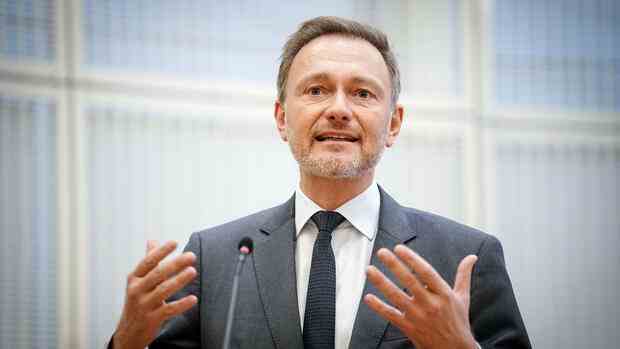An interesting anecdote recently happened at the SPD debate convention. Ironically, a certain Kevin Kühnert, otherwise anything but a regulatory guardian of the Grail, prevented his Jusos from demanding the abolition of the debt brake. The SPD general secretary convinced his comrades with a simple argument: Debts are not the problem of the SPD. Christian Lindner from the FDP will procure them for us. And through special budgets outside of the regular budget.
The fact that a notorious disregard for debt brakes like the SPD general secretary no longer sees the need to abolish them shows how seriously the constitutional rule is still taken by large parts of politics: namely not at all.
Ironically, Germany, which sees itself as a haven of financial stability, as an anchor of confidence in the European monetary union, has been acting as a financial charlatan for some time: Europe’s largest economy interprets its debt rules in a way that suits government politicians. This is observed in Rome, Paris, Madrid and Brussels with just as much attention as joy, sometimes even malicious joy. In fact: Where should a “the disciplinarian” Germany get its legitimacy to discipline its euro partners if it doesn’t even stick to its own rules?
At any rate, at the end of 2022 one has to realize that the debt brake is as good as history. For years, the austerity rule poured into the constitution in 2009 has been neatly deconstructed: first by economists, then by the grand coalition. And this year in a whole new dimension of the traffic light and the federal states.
Top jobs of the day
Find the best jobs now and
be notified by email.
The true national debt has long exceeded the scope of the debt rule by a multiple. As a reminder: Before the federal elections, economists called for a debt-financed investment program of 500 billion euros, laid out over ten years.
Traffic light bypasses the debt brake by all means
Exactly this amount of debt has now been decided by the traffic light within a year. Because the debt brake had to be circumvented for this, the government created “special funds” outside of the federal budget, which, without the euphemistic political jargon, are of course nothing more than “debt funds”.
>> Read also: The economy is pushing for a change in tax policy in the crisis
The federal states have taken this debt policy as an example and are also beginning to use tricks to circumvent the debt rule. For example, Saarland has just overturned the debt brake with a “transformation fund”.
The SPD government uses the long-term “transformation challenges” triggered by the energy crisis as justification for the billions in debt. If Saarland gets through with this seemingly arbitrary justification, it would have provided the other states with a wonderful blueprint for circumventing the debt brake. After all, who doesn’t have a challenge?
In NRW, the black-green coalition in NRW also tried to trick the constitutional rule with a questionable debt stunt. The NRW state government wanted to use billions in unused corona debt to combat the energy crisis. Only the State Court of Auditors considered this to be unconstitutional. Now the country has withdrawn the regular exception rule from the debt brake in order to be able to incur five billion in debt.
>> Read here: How Germany can invest 600 billion euros without taking on debt
Other countries are likely to follow soon and, like NRW, will suspend the debt brake for the fourth time in a row in 2023. Which raises the question of whether the debt brake still has any residual credibility if at the same time the exception is made permanent and it is tricked out.
Federal Finance Minister Lindner boasts that he will comply with the federal debt brake in 2023. But in view of half a trillion euros in debt in shadow budgets, the FDP leader has long since lost his credibility as Lord Seal Keeper of the constitutional rule.
Establishment of state-owned companies in municipalities and states to circumvent the debt rule
The capital markets, to which Lindner wants to send “a signal of stability” by complying with the rule, naturally see through the German debt tricks.
And the next loophole is already opening up. It should not be a coincidence that states and municipalities founded a whole series of new state-owned companies just as the debt brake was being introduced. Politicians have not yet used them as a debt vehicle. However, the 2010s were also economically golden times. The test of the example comes when times are not so golden.
The Saarland uses the energy crisis as a reason to circumvent the debt brake.
(Photo: dpa)
However, it is also true that the rigid debt brake of the German type only encouraged the trickery. Well intentioned, the debt brake in its current form proved to be too tight a corset, from which politicians are now pulling out with all their might in order to gain financial room to deal with the crisis.
Abolishing the debt brake would not make sense. The binding effectiveness of debt rules has long been scientifically proven. If you want to save the debt brake, you have to reform it. And raise the debt limits to the European level.
More: Risk of state-owned companies – why a huge shadow debt state is emerging in Germany
